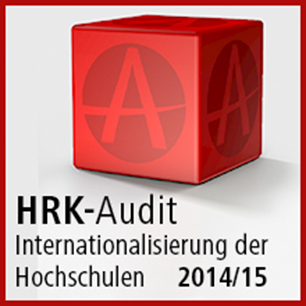Internationalisation at the University of Greifswald
International teaching and research are key characteristics of top-performing universities. By continually enhancing the quality of research and teaching, the University will improve its national and international competitiveness and visibility, making its mark as an attractive academic location.
New Internationalisation Strategy 2022-2030
The University of Greifswald has taken the current challenges and the introduction of new EU mobility programmes for 2021-2027 as an opportunity to revise its strategic goals for internationalisation from 2016 and to redefine them for the years 2022-2030. The current guiding principles and procedural standards comprise all of the University’s central fields of activity: the central tasks research, teaching and studies, as well as Third Mission, the cross-sectional duties concerning UG’s partnership, mobility and language policies, the administration, and internationalisation@home. Lastly, digitisation is used effectively and beneficially to enhance internationalisation.
Strategies and Measures: 3 Documents
The strategies and proposed measures are the result of participative, university-wide, extensive discussions and have been put down in the following documents:
The Strategy Paper describes the strategic goals of the University’s various fields of activity up until 2030.
The Action Plan comprises specific mid-term goals and measures that are to be realised by 2025.
The Catalogue of Measures (which is provided below and only accessible after successful login) summarises all of the previously recognised needs and possibilities for implementation that can be used to determine future measures.
All of the documents are accompanied by a glossary, which defines terms specific to internationalisation and internationality.
Joint Realisation of the Goals
Internationalisation will be a success if all members of the university community are given the opportunity to and actually play an active role. Motivated lecturers and students are just as important as internationally renowned researchers with global networks when acting as ambassadors for the University in Europe and across the globe. Administrative staff who have received language and intercultural training make a decisive contribution towards the University’s welcoming culture. Correspondingly, the implementation of the new Internationalisation Strategy will be accompanied by all members of the university public and supported at the same time by external experts.

